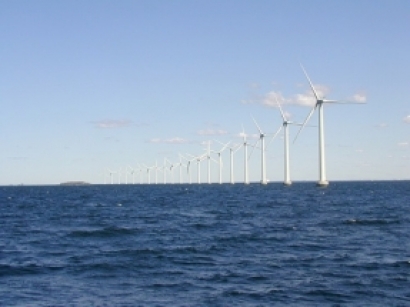
The paper underlying the report attributes this almost remarkable development to U.S. municipalities and businesses striving to fill the void created by President Donald Trump announcing the United States' withdrawal from the Paris Climate Accord.
Authors Shanta Devarajan and Tito Cordella, senior director and adviser, respectively of development economics at The World Bank, said an unanticipated consequence of the U.S. "leaving Paris" was how private firms and local governments would react.
"Major oil companies, including ExxonMobil, continue to invest in low-carbon technologies and some state governments have imposed stricter local environmental standards to countervail the weaker federal ones," the authors write in a Brookings Institution blog on their findings.
As an example, they point to the efforts of then-California Governor Jerry Brown, who in September 2018 signed an executive order committing the state to be carbon-neutral by 2045.
"As Nathan Hultman and Paul Bodnar put it in another Brookings blog, 'Trump tried to kill the Paris agreement, but the effect has been the opposite,'" the authors write.
While the unexpected developments may be due to the public-spirited behavior of firms and state governments, the authors suggest that firms’ investments in clean technologies and states’ adoption of stricter emission standards could also be the result of firms’ profit-maximizing behavior accompanied by successful lobbying efforts in the face of weaker environmental rules.
"The decision to relax emission standards may increase firms’ incentives to adopt clean technologies. The reason is simple: The increased output that these technologies permit may raise profits by more than what the dirty technologies allow," they write.
Despite the headline-grabbing fact that renewable energy surpassed coal as a proportion of U.S. energy production, the share of renewable energy used in the United states is still low by international standards.
They note that in 2015, the most recent year from which reliable statistics were available as they compiled their report, renewable energy represented just 13 percent of mix in the U.S. They compare this to nearly a third of Germany's energy coming from renewables (29 percent), and three-quarters of Brazil's energy (74 percent) coming from same renewable sources, mainly wind, solar and hydropower.
Devarajan and Cordella also have concerns about the future.
Yes, businesses and local governments have made great strides in balancing the initial negative impacts of Trump administration policies, but they fear that in order to undo the long-term damages current White House polices are inflicting on the environment, a future, "greener" administration intent on meeting the nation's original Paris commitments may be forced to impose "draconian" emission cuts.
These, they say, may negatively affect firms' profitability and cause them to be less green-minded in the future.
In their view, "all firms would be better off if they were mandated to adapt today to the standards that they will likely face in the future."
To illustrate their point, they turn to the issue of traffic congestion.
"While we would all be better off if we were forced to use public transportation instead of contributing to traffic jams, it is in no individual’s interest to leave their car home just to make others’ commute easier," they write. "An efficient way to solve this tragedy of the commons, is to force all firms to abide by a stricter regulation.
"Of course, this is easier said than done when federal regulation is at the root of the problem. And it is unlikely that all states will agree on a common stricter regulation because, again, it will be in the interest of small states to free ride on the regulation enacted in the other states," they write.
For larger states, the story is a different one. The authors say some states may have enough critical mass that their regulations have such a positive impact on the national level that they'd be willing to pay the price of stricter regulation, regardless of what other states do.
Devarajan and Cordella call this the "California effect," which they explain as a very large state being willing to pay for the price of policies that affect the rest of the U.S. states because they are also significantly affected by them.

